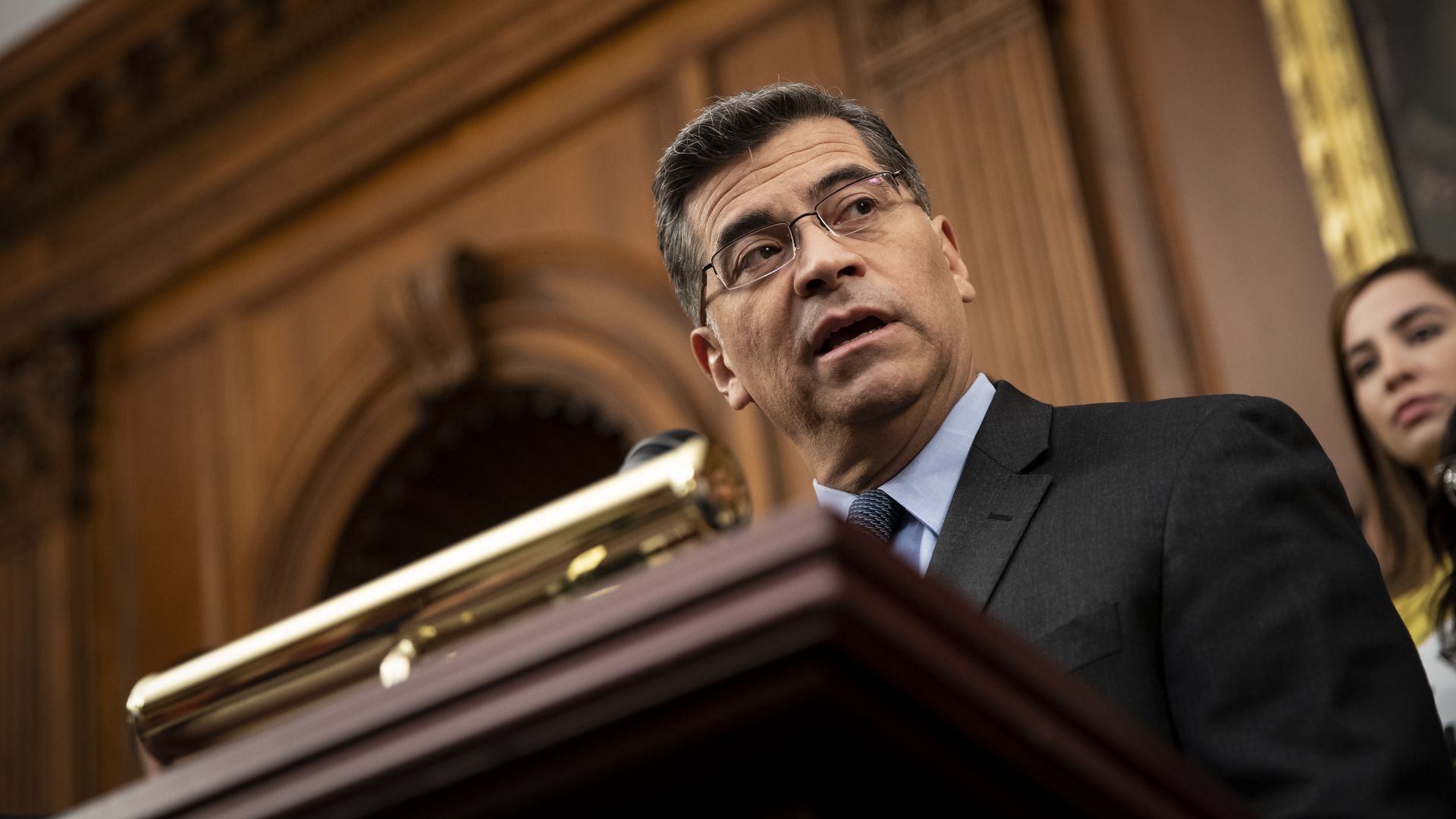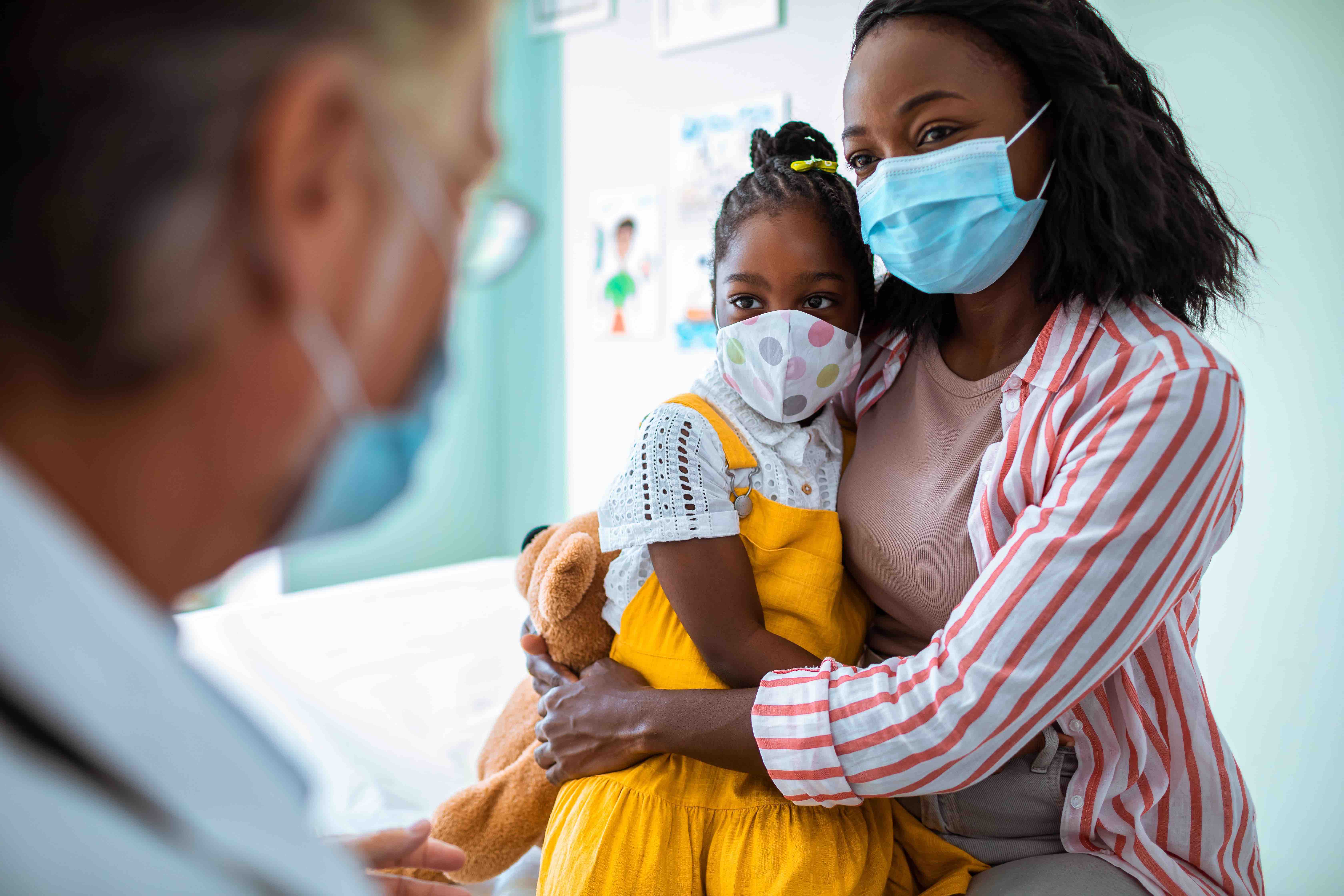| | | | | | | Presented By PhRMA | | | | Vitals | | By Caitlin Owens ·Feb 22, 2021 | | Good morning. Today's word count is 1,029, or a 4-minute read. | | | | | | 1 big thing: Becerra heads to the hot seat |  | | | California Attorney General Xavier Becerra. Photo: Al Drago/Bloomberg | | | | California Attorney General Xavier Becerra is more likely than not to be confirmed as the next secretary of Health and Human Services, especially now that another of President Biden's nominees is in hot water. Yes, but: Becerra's confirmation hearings this week will probably become political brawls over abortion, Medicare for All, California's pandemic response and Becerra's qualifications for the job. Driving the news: Becerra will face the Senate Health, Education, Labor and Pensions Committee on Tuesday and the Senate Finance Committee on Wednesday. - Crossing the finish line may have gotten easier for Becerra on Friday, when Sen. Joe Manchin (D-W.Va.) announced his opposition to Neera Tanden, Biden's choice to lead the Office of Management and Budget.
What they're saying: "In my conversations with Senate Democrats, what I'm hearing is a huge sense of relief that in Attorney General Becerra, we'll have a qualified, experienced leader," Health, Education, Labor and Pensions Chairwoman Patty Murray (D-Wash.) told Axios' Hans Nichols. The other side: "He's literally the least qualified nominee in the history of the agency," said a senior GOP aide working on the nomination, a preview of what we're likely to hear this week. - "No experience in health, no experience in managing something of this size, no expertise in pandemic issues," the aide added.
What we're watching: One area of strong disagreement between Becerra and more moderate Senate Democrats is Medicare for All, which the nominee has supported in the past. - But the HHS secretary can't ram through a single-payer health care system on his own.
- However, the secretary can make significant policy changes via waivers, as NYT wrote last year, and will be central to shaping Biden's regulatory health care agenda.
|     | | | | | | 2. Vaccine trials failing to be representative |  Note: Trials occurred in the U.S. between 2011 and 2020; Population reflects average U.S. Census figures for 2011 to 2018. Source: 2021 Flores LE et al. JAMA Network Open; Chart: Michelle McGhee/Axios U.S. vaccine trials over the past decade have not included enough seniors and Hispanic and Black adults, and show a failure to report needed demographic details, according to a study published in JAMA Network Open Friday looking at a large sample of trials. Why it matters: By not capturing a representative sample of Americans, vaccine trials cannot fully demonstrate the safety and effectiveness for all people and miss out on an opportunity to build trust within underrepresented communities — something vitally important in the COVID-19 pandemic, experts tell Axios' Eileen Drage O'Reilly. - "It makes it harder to ensure that our drugs and medicines are going to work for all people," says Namandjé Bumpus, director of the department of pharmacology and molecular sciences at Johns Hopkins University School of Medicine.
Study co-author Steven Pergam says the "downstream effect" of inclusivity is important for building trust in communities for vaccines, particularly "when you look at the data about the clinical trial and you see people like yourself included, and you show the safety and efficacy in those groups." The state of play: Despite efforts by the NIH and FDA to require more trials to report age, sex, race and ethnicity, most do not comply completely. - Pergam says an examination of adult trials found that Hispanic (12%) and Black (11%) adults, as well as seniors (12%), were not represented equitably, while white people (78%) and women (56%) tended to be overrepresented.
Go deeper. |     | | | | | | 3. NIH director slams maskless Republicans | | The politicization of mask wearing during the pandemic may have led to the deaths of "tens of thousands" of Americans because of increased spread of COVID-19, National Institutes of Health director Francis Collins tells "Axios on HBO." What they're saying: "The evidence was pretty compelling by last March or April that uniform wearing of masks would reduce transmission of this disease." - "And yet, with a variety of messages through a variety of sources, mask wearing became a statement about your political party or an invasion of your personal freedom," Collins added.
- "A mask ... got categorized in all sorts of other ways that were not factual, not scientific, and frankly dangerous. And I think you could make a case that tens of thousands of people died as a result."
In response to a question about former President Trump's resistance to mask-wearing, Collins said "2020 was a pretty difficult year." By the numbers: Almost two thirds of Americans in a July Axios-Ipsos Coronavirus Index survey said they wore a mask whenever they left the house, but a partisan split persisted. - 95% of Democrats said they wear a mask some or all of the time outside the house, compared with 74% of Republicans.
|     | | | | | | A message from PhRMA | | We are committed to being a part of the solution | | |  | | | | America's biopharmaceutical companies are committed to ending the pandemic by: - Continuing to develop treatments and vaccines to combat COVID-19,
- Working closely with governments, insurers and others to make sure vaccines and treatments are accessible and affordable.
| | | | | | 4. The psychology of vaccine hesitancy | | A new survey identifies some of the psychological barriers to taking vaccines — and how to overcome them, Axios' Bryan Walsh reports. What's happening: In a survey released on Friday, Surgo Ventures polled nearly 3,000 U.S. adults to determine how best to reach the vaccine-hesitant. - The results were broken down into five groups based on their attitudes toward the vaccines.
By the numbers: - 40% of respondents fell into the enthusiastic camp and reported eagerness to get vaccinated as soon as possible.
- Another 20% were in the watchful group, which means they weren't against the vaccine, but were worried about side effects and didn't want to be first in line.
- 14% were classified as cost-anxious — they tended to be younger and live in rural areas, and they perceived that the costs of the vaccine in time and money exceeded the benefits.
- 9% were system distrusters, who were more likely to be minorities, and believed the vaccine had not been adequately tested for their group.
- The last 17% were conspiracy believers who tended to be Republican and had little fear of COVID-19 itself. They often subscribed to more outlandish and harmful theories about vaccines.
The bottom line: We can't reach everyone, but with psychologically tailored strategies, we can hopefully reach enough. |     | | | | | | 5. Catch up quick |  | | | Illustration: Aïda Amer/Axios | | | | Collins tells "Axios on HBO" that the Trump administration deserves credit for the "breathtaking" speed of COVID vaccine development. Randi Weingarten, president of the American Federation of Teachers, tells "Axios on HBO" that states should prioritize teachers for vaccinations as part of reopening schools for in-person learning. She declined to say whom teachers should be prioritized over. Americans wearing face masks in 2022 is "possible," NIAID director Anthony Fauci told CNN's "State of the Union" on Sunday. America's much-maligned vaccine rollout is actually going relatively well, at least compared to other wealthy countries, Axios' Dave Lawler reports. The U.K. will aim to offer all adults in the country the first dose of the COVID-19 vaccine by the end of July, Prime Minister Boris Johnson said Saturday. Israeli Prime Minister Benjamin Netanyahu said Saturday that people who have been fully vaccinated against the coronavirus will soon be able to download a certificate that would allow them to attend cultural events, fly abroad and go to gyms. Rapid at-home COVID-19 tests are fast, but the regulatory approval needed to get them in the hands of Americans has been slow to come, Bryan writes. |     | | | | | | A message from PhRMA | | We are committed to being a part of the solution | | |  | | | | As we usher in a new Congress and new administration, we can all agree that people need quality, affordable health coverage that works when they need it. - We are focused on solutions that help patients better afford their medicines and protect access to innovation today and in the future.
| | | | | | Axios thanks our partners for supporting our newsletters.
Sponsorship has no influence on editorial content. Axios, 3100 Clarendon Blvd, Suite 1300, Arlington VA 22201 | | | You received this email because you signed up for newsletters from Axios.
Change your preferences or unsubscribe here. | | | Was this email forwarded to you?
Sign up now to get Axios in your inbox. | | | | Follow Axios on social media:    | | | | | |







No comments:
Post a Comment